Principal's Update
At Dundas Public School we do our best always

Principal's Update
At Dundas Public School we do our best always
Is it hard to believe that we are already halfway through Term 4, our favourite time of the year, with many events, opportunities for learning and celebrations of our wonderful students. We look forward to sharing their learning and showcasing some of their work throughout the term.
I wanted to thank the amazing Mrs Zalaf for stepping into the principal role during my leave and for doing such a terrific job! I am extremely grateful that Dundas PS has the outstanding depth in our school leaders. I am blessed to have such a talented, cohesive leadership, admin and teaching team!
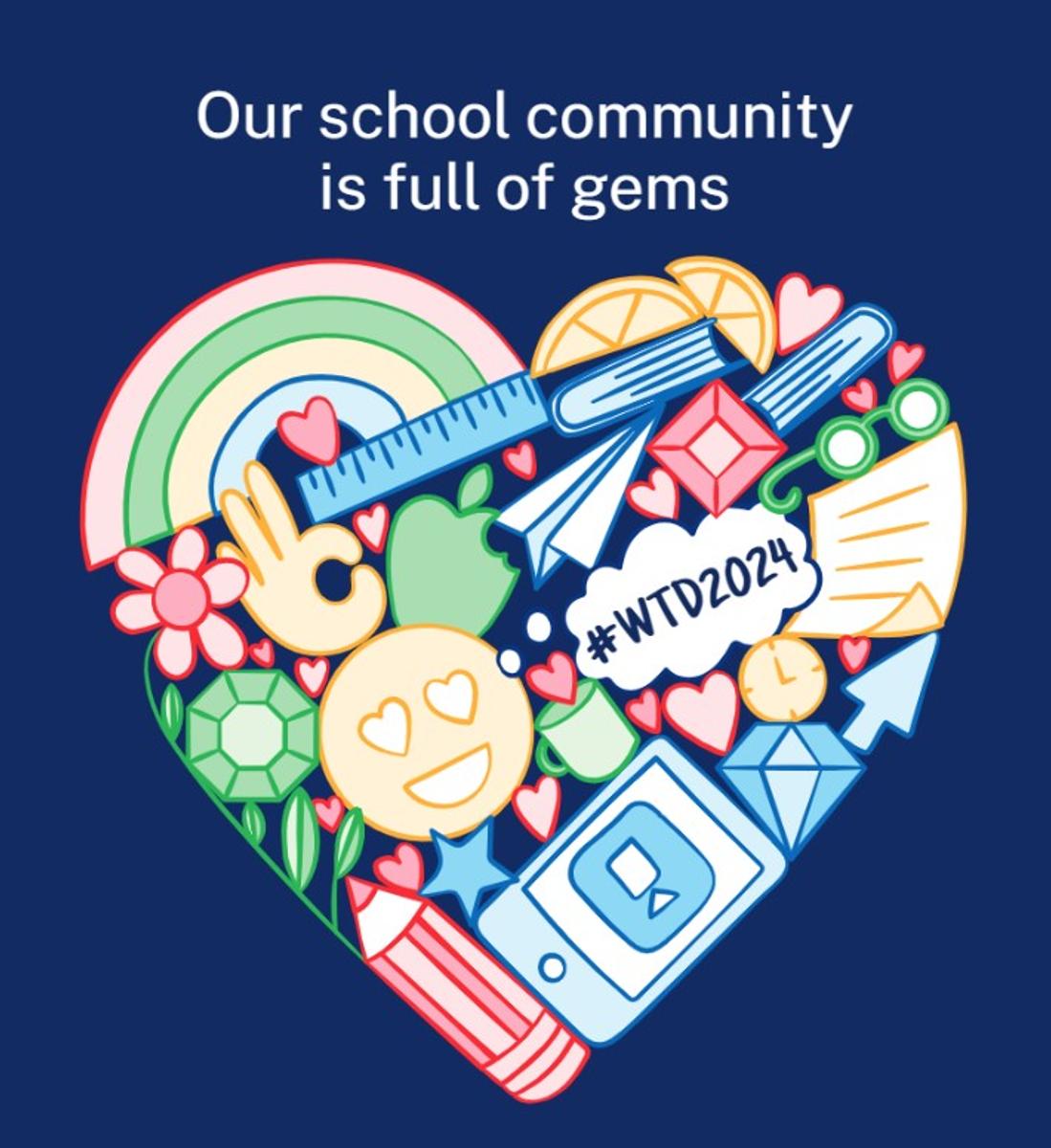

Last week, a progress update from School Infrastructure was shared with the school community. In summary:
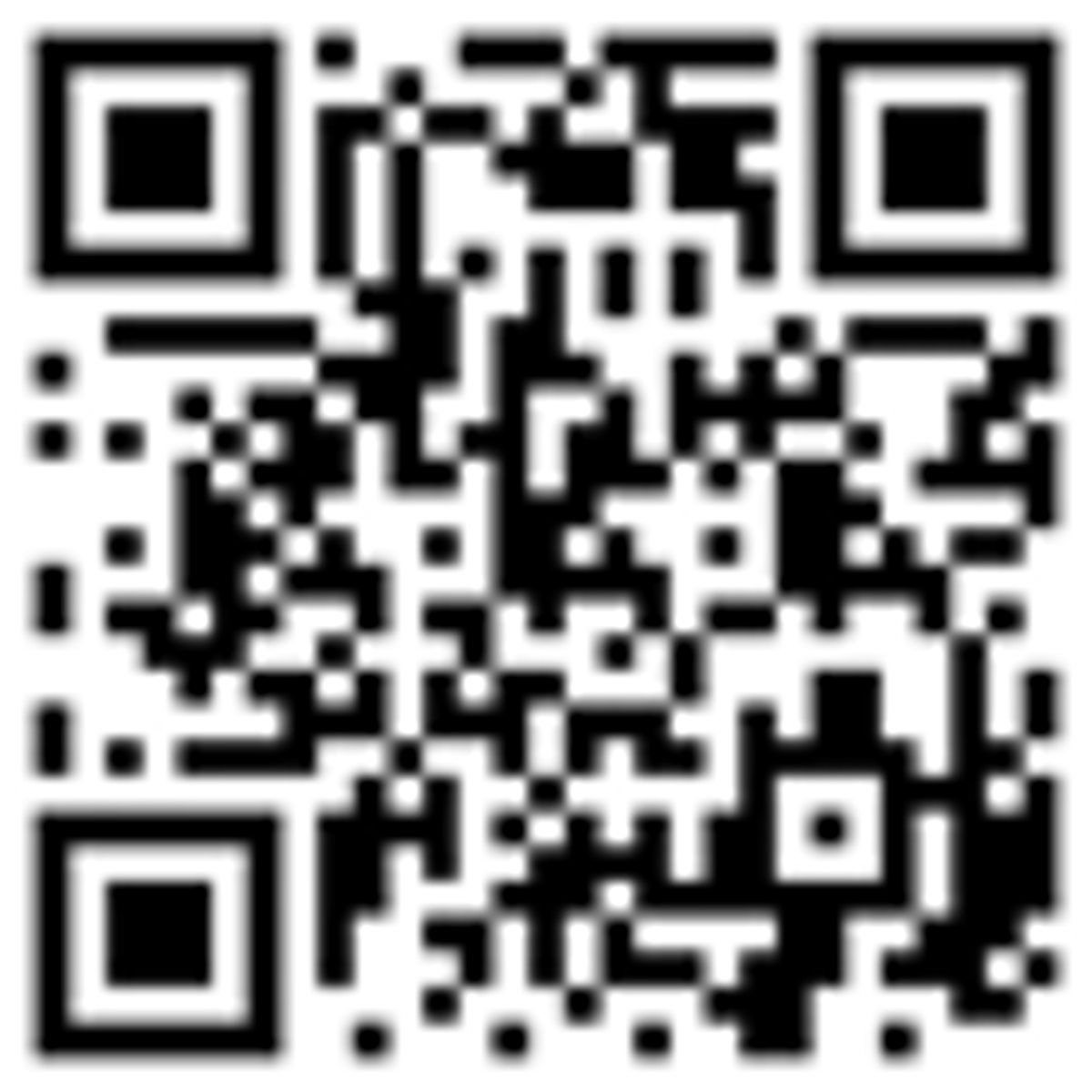

More information
You can find more information about the project at edu.nsw.link/DundasPS or by scanning the QR code.


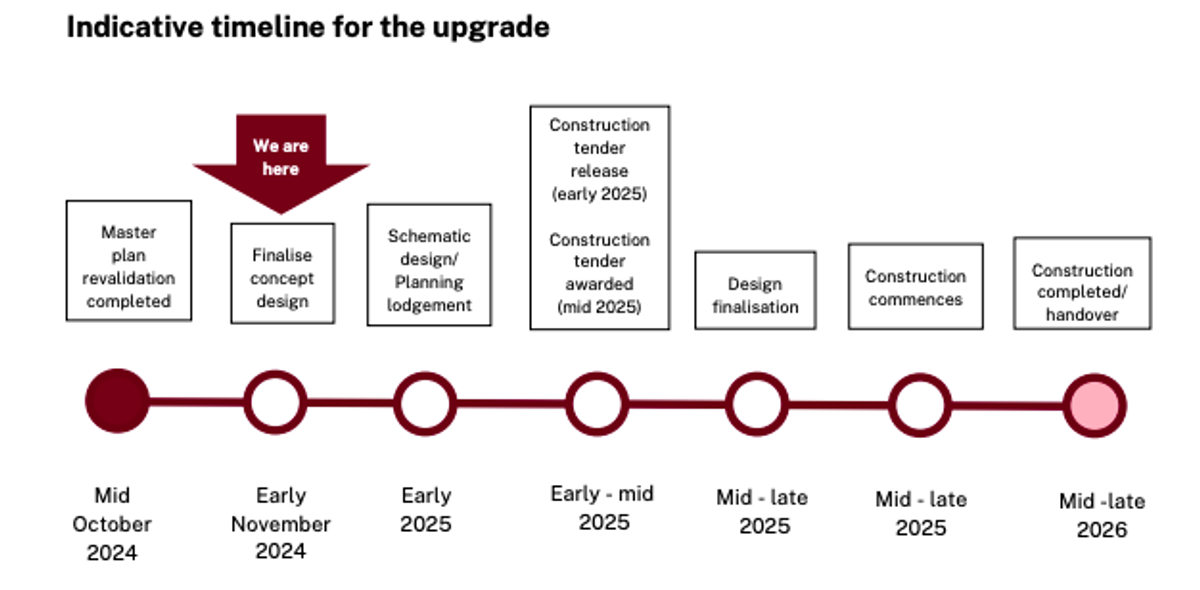

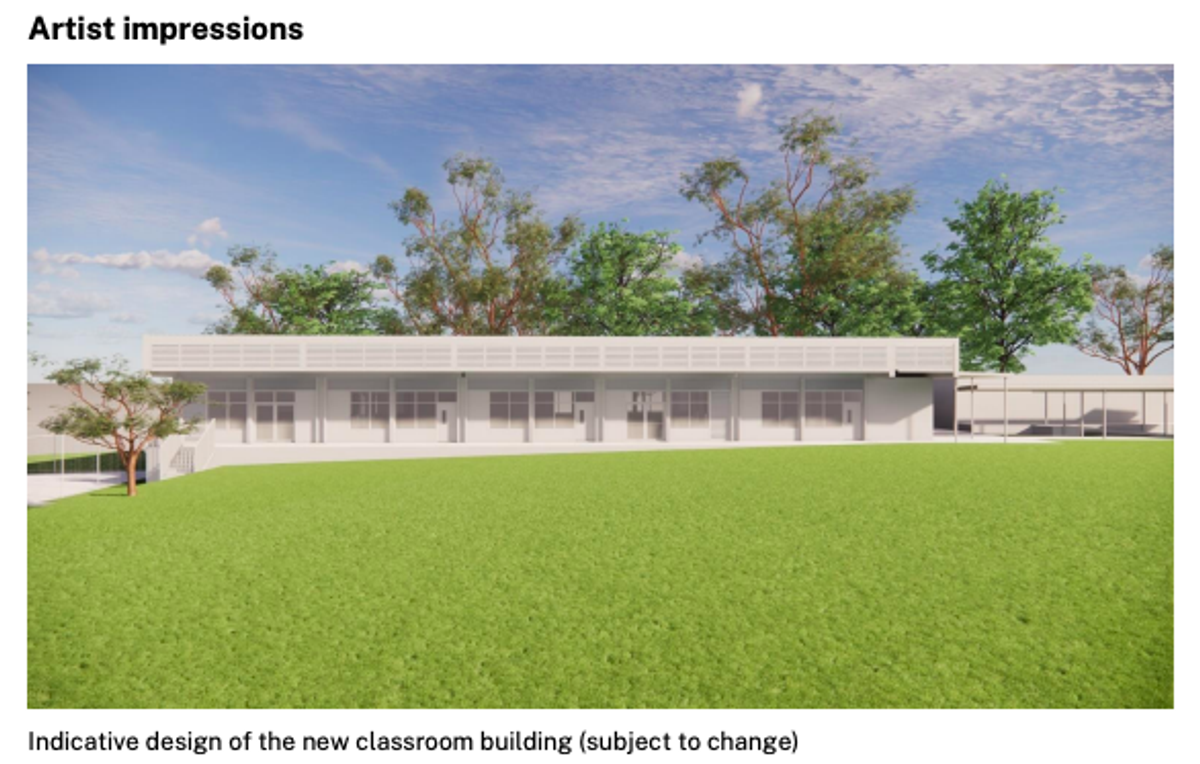

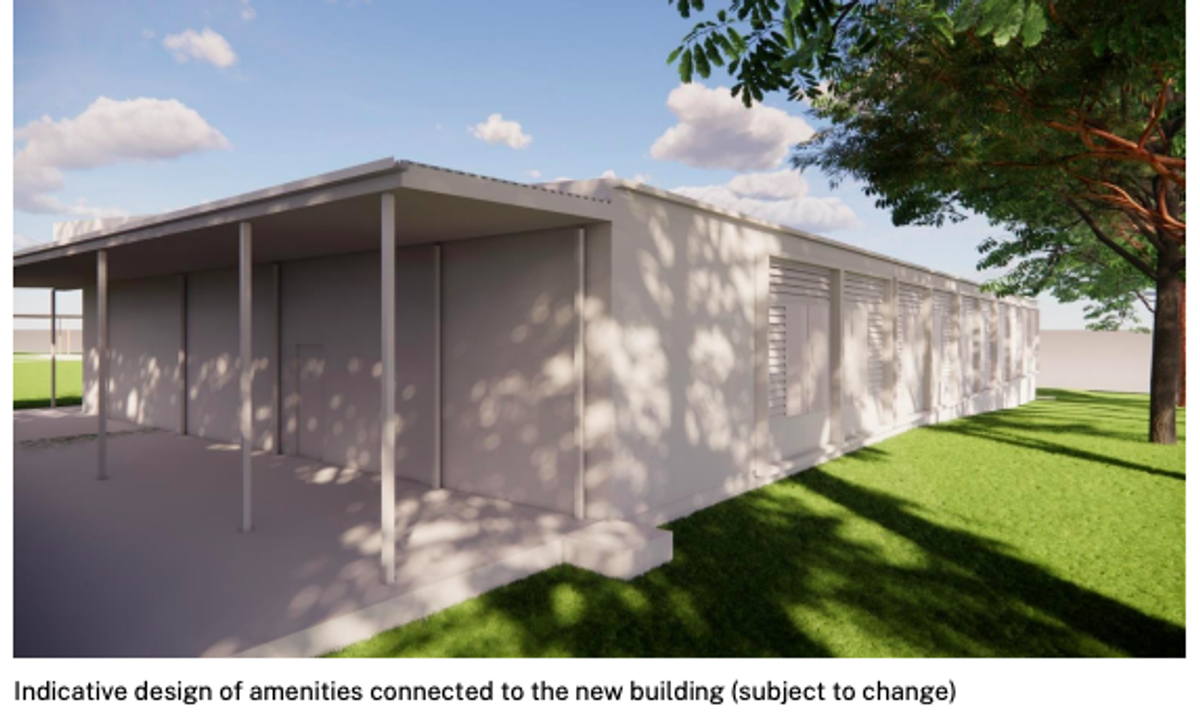

This year, week 5 of each term has been a week where we stop the fast pace of busy teaching and learning programs and spend some time focused on the wellbeing of our students. For most classes on Wellbeing Wednesday, wellbeing activities will take place after lunch. Activities planned for Wellbeing Wednesday do not include devices, reducing screen time for our students.
I thank Ms Edwards for putting together the Wellbeing Wednesday activities that classes will be participating in this week. Students are welcome to come dressed in their favourite colours. For student sun protection and safety, clothing where shoulders are covered must be worn and closed-in shoes.
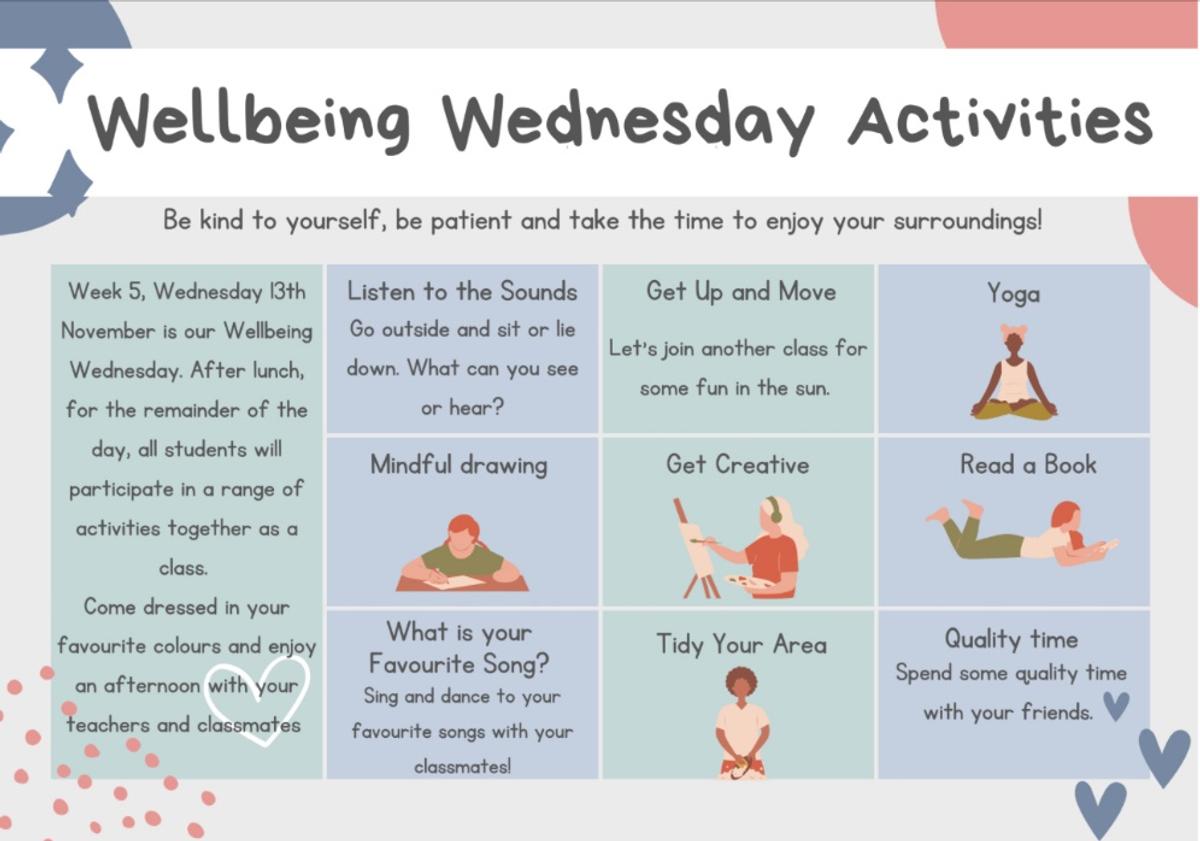

The school leadership team has commenced planning for 2025. Currently, we are planning for less enrolments for 2025, with 41 kindergarten enrolments starting but we are losing 57 Year 6 students as they transition to high school.
At this point in time, we are planning to have 12 classes for 2025. The number of classes is dictated by the staffing formula of the NSW Department of Education. Our current 2025 enrolment numbers equal forming 12 classes.
We are extremely fortunate at DPS to have highly skilled, professional and passionate teachers. Creating classes is an extremely rigorous process that teachers take very seriously. Our aim is to provide equity for all students based on their academic, social and emotional needs.
Shortly, students will be completing their friendship sociograms where they are asked to identify 5 students, they are friends with. A reminder of the DPS Class Formation & Teacher Allocation Policy document shared with our community at the beginning of 2024. Below is a link to the policy document on our school website.
Class_formation_and_teacher_allocation_policy_February_2024.pdf
If your child has any social, academic or emotional needs that we are unaware of which may have an impact on their class placement for 2025, please email the school - attention Lee Shipley. This information must be submitted by Friday, 29th November.
Requests for specific teachers will not be taken into consideration.
The NSW Department of Education has mandated a change in the number of Staff Development Days (pupil free days) there is starting in 2025. Starting next year, there will be a total of 8 Staff Development Days that will be the same dates for both NSW public primary and secondary schools.
Changes to School Development Days for 2025 Term One:
2025_Calendar_Eastern_division_schools.pdf
School development days are used by schools to build on the knowledge and skills of our teachers, school leaders and school administrative support staff through a targeted professional learning program.
Professional learning is important in building the capabilities of all staff to ensure a highly skilled and professional workforce that can support the department’s vision for NSW public education to be Australia’s best education system and one of the finest in the world. School development days improve the learning outcomes of students by:
A friendly reminder that the school will not be using the Audiri app next year, and as a result, we are asking all parents and caregivers to download the free Sentral for Parents App that is being used as an improved replacement.
This change will improve our communication with our school community. The introduction of the Sentral for Parents App offers the introduction of online student reports as well as attendance and messaging platforms.
This term, ALL student reports will be online which is a very exciting initiative. NO student reports will be printed and sent home. Having student reports available online means that they can be accessed at home whenever it is convenient.
Staff at Dundas Public School address issues between students as soon as they are aware of them. If parents and carers have any concerns that their child may be experiencing issues with other students, please share those concerns as soon as possible with the child’s classroom teacher.
The DPS school website outlines a helpful overview to assist parents and carers address their concerns to the right staff member. A link to the website page is below.
Occasionally, staff manage a reported bullying issue between students, then discover that the issue between students was not bullying. Below is information from the NSW Department of Education website, which explains bullying in more detail.
What is Bullying?
Bullying can happen at school, at home or online. It is never okay and it is not a normal part of growing up.
There is a nationally agreed definition of bullying which all Australian schools now use:
Bullying is an ongoing and deliberate misuse of power in relationships through repeated verbal, physical and/or social behaviour that intends to cause physical, social and/or psychological harm. It can involve an individual or a group misusing their power, or perceived power, over one or more persons who feel unable to stop it from happening.
Bullying can happen in person or online, via various digital platforms and devices and it can be obvious (overt) or hidden (covert). Bullying behaviour is repeated, or has the potential to be repeated, over time (for example, through sharing of digital records).
Bullying of any form or for any reason can have immediate, medium and long-term effects on those involved, including bystanders. Single incidents and conflict or fights between equals, whether in person or online, are not defined as bullying.
Bullying has three key features. It:
1. involves a misuse of power in a relationship
2. is intentional, ongoing and repeated
3. involves behaviours that can cause harm.
Bullying can be physical, verbal, or social. Bullying can be easy to see (overt), or hidden (covert), such as spreading rumours about another person or excluding them.
Bullying can also happen online using technology such as the internet or mobile devices. This is known as online bullying or cyberbullying.
A person can be bullied about many different things such as how they look, sound or speak; their background, religion, race or culture including Aboriginality; having a disability; their gender; their size or body shape or any other ways they may be different.
Some students are bullied about their academic or sporting achievements or hobbies.
Types of bullying behaviour
There are four main types of bullying behaviour:
Overt or covert bullying
Bullying can be easy to see and detect (overt) or hidden, subtle and hard to detect (covert). This means that schools need to be alert to possible subtle signs of bullying and check in regularly with students.
Social bullying (spreading rumours, manipulation of relationships, excluding, isolating) is often covert bullying.
Some behaviours can appear to be bullying but are harassment. Harassment is language or actions that are demeaning, offensive or intimidating to a person. It can take many forms, including sexual harassment, disability harassment or racial discrimination. For instance, sexual harassment is unwelcome or unreciprocated conduct of a sexual nature, which could reasonably be expected to cause offence, humiliation or intimidation.
What is not bullying?
There are also some behaviours, which, although they might be unpleasant or distressing, are not bullying :
What is cyberbullying?
Cyberbullying is bullying behaviour using the internet or digital devices.
It might include:
How is it different to other forms of bullying?
Cyberbullying is particularly hard for young people to cope with because:
What to do when a child reports cyberbullying?
If your child reports cyberbullying:
What children and young people need to know:
Our new students had a wonderful time at their first orientation session last week. We look forward to welcoming them back next week! Thank you to Ms Edwards, Mrs Haddock and our office administration team for the thorough planning and preparation.
Please join us tomorrow evening for our 2024 P&C AGM meeting. It will be held in the staffroom starting at 6pm and also via Teams for those that cannot attend the meeting in person. All P&C executive positions will be open to be filled at the AGM.
Meeting ID: 488 389 555 761
Passcode: 8RZcKF
Next year we will be starting a new School Improvement Plan (SIP). We will have 2 identified Strategic Direction areas which will be:
We have identified that Numeracy as an area of focus for our school where we would like to improve. Even though overall, we were very happy with this year’s NAPLAN data, we were disappointed with the lack of uplift from 2023 in numeracy.
Year 3 numeracy data of students in Strong and Exceeding proficiency levels dropped by 0.5% from 2023 and Year 5 data of 77% had a small uplift of 3.4%, but it was the only NAPLAN test where we were not over 80% in the Strong and Exceeding proficiency levels. We believe we can improve those results over the next 3 years.
This is a friendly reminder that school dismissal is at 3pm. Students not attending Camp Australia should be picked up at 3pm.
Students should not be on the school grounds unsupervised after 3pm. If parents are running late and cannot pick up their children at 3pm dismissal, the students will be taken to the school office until parents can be contacted to arrange their pick-up.
Students should not be playing on school equipment after school. The play equipment is clearly signed, and we expect that parents and carers, follow the expectations to ensure students are safe.
If parents are not able to pick up their children on a regular basis, then the children should be registered to attend Camp Australia on those days.
Students should not be left alone in a school park waiting to be picked up by their parents. These students are often without adult supervision which is unsafe.
We are still accepting online enrolments for Kindergarten 2025. Your child can start Kindergarten at the beginning of the school year if they turn five on or before 31 July in that year. By law, all children must be enrolled in school by their sixth birthday.
How to Enrol
If you are an Australian or New Zealand citizen or permanent resident and live within our designated intake area, you are eligible to complete the online enrolment application. You will then need to finalise the application at the school.
Click here to access School Finder and check that your address is in our catchment.
Parents will be asked to complete the 100-point residential address check to confirm they live within the school’s designated intake area.
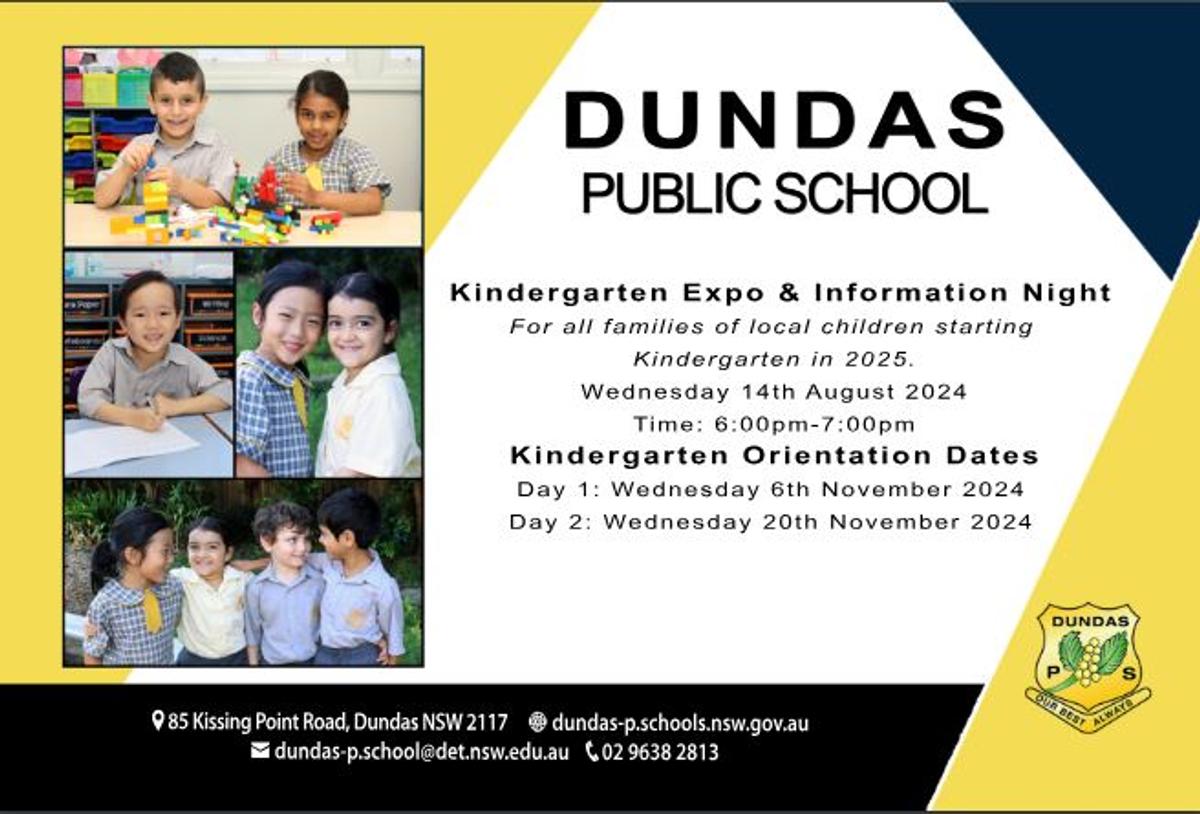

Click here to read about the 100-point residential address check.
We look forward to meeting you and your child very soon!